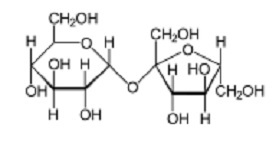Sugars and dental caries
Improve your custom!
Refresh your mouth by Tooth brushing. Bye Bye Sugars and dental caries!
Sugars is a major cause of dental caries!
It is even more dangerous for your life!
Some literatures by WHOare presented here.
WHO technical information note
WHO Key-Fact report is as following:
WHO Key-Fact
Dental caries (also known as tooth decay or dental cavities) is the most com-mon noncommunicable disease worldwide.
Dental caries is an expensive disease to treat, consuming 5-10% of health-care budgets in industrialized countries, and is even among the reasons of some disease for hospitalization of children and elders in some high-income countries..
Free sugars are the essential dietary factor in the development of dental cariesbecause dental caries does not occur in the absence of dietary sugars.
Dentalcaries develops when bacteria in the mouth metabolize sugars to produce acidthat demineralizes the hard tissues of the teeth (enamel and dentine).
People who have more dental caries have a higher intake of free sugars.
In many countries, sugars-sweetened beverages, including fruit-based andmilk-based sweetened drinks and 100% fruit juices, are a primary source offree sugars.
Confectionery, cakes, biscuits, sweetened cereals, sweet desserts, sucrose,honey, syrups and preserves are common sources of free sugars.
Unlike whole fresh fruits, fruit juices contain free sugars and also contain morecalories.
Importantly, chewing whole fresh fruit stimulates salivary flow thatprotects against demineralization of tooth substance.
Limiting free sugars intake to less than 10% of total energy intake and ideallyeven further, to less than 5% minimizes the risk of dental caries throughoutthe lifecourse.
Severe dental caries often causes pain and infection, which may result in toothextraction.
Severe dental caries also affects general health and well-being.nSevere dental caries is a frequent cause of absenteeism at school or work.
Anassociation between dental caries and undernutrition in children has beenreported in some low- and middle-income countries; however, whether this iscause or effect, or both, remains to be determined.
The severity of dental caries may be measured by using indices such as the DMFT/dmft index (where upper case denotes permanent dentition and lower case primary dentition), which records the number of decayed (D), missing (M) and filled (F) teeth.
Free sugars include all monosaccharides and disaccharides added to foods and drinks by the manufacturer, cook or consumer, and sugars naturally present in honey, syrups, fruit juices and fruit juice concentrates (WHO Guideline on sugars intake for adults and children:)
Population-wide strategies to reduce free sugars consumption are the key public health approach that should be a high and urgent priority.
Because dental caries is the result of lifelong exposure to a dietary risk factor (i.e. free sugars), even a small reduction in the risk of dental caries in childhood is of significance in later life; therefore, to minimize lifelong risk of dental caries, free sugars intake should be as low as possible.
It is important that population-wide prevention interventions are universally available and accessible.
Such interventions include the use of fluoride, and comprehensive patient-centred essential oral health care.
Globally, dental caries poses many challenges. The disease burden is unequally.
WHO Guideline on sugars for dental health professionals is as following:
WHO Guideline on Sugars
Dietary advice should:
(i) focus on reducing the amount offree sugars consumed;
(ii) be tailored according to the patient's body mass status(eg. underweight, overweight, normal weight);
(iii) encourage the consumption offresh fruits and vegetables, nuts, seeds, and wholegrain starch-rich foods;
(iv) dis-courage the consumption of foods high in saturated fat and salt; and
(v) discouragethe consumption of all drinks containing free sugars.
The dental health professional has an opportunity to support patients to reduce their intake of free sugars - such advice and support will have positive impacts beyond the mouth
The effects on general health are as follows:
Sugars_intake
Sugars_intake_PDF
